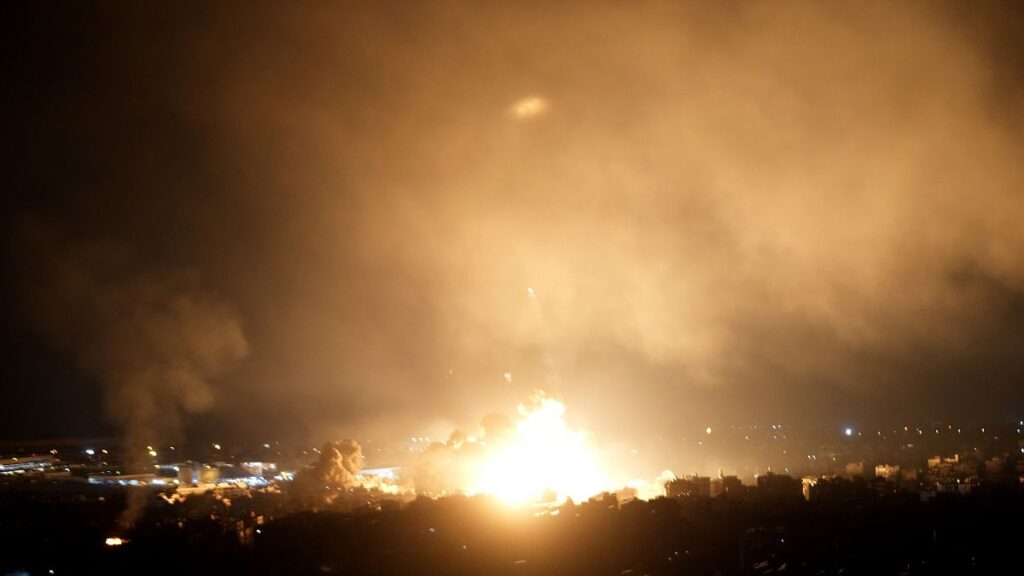Israel and Hezbollah have exchanged almost daily cross-border fire since October, but hostilities have recently escalated to the point that many fear a broader regional war in the Middle East.
The Israeli army has asked the population to evacuate localities in southern Lebanon located outside the buffer zone declared by the United Nations, indicating that it could expand the ground operation launched earlier this week against the group Hezbollah activist.
The announcement comes as a series of massive explosions were heard in the capital Beirut in the early hours of Friday morning.
Lebanon’s national news agency reported more than ten consecutive airstrikes in the capital, but it was not clear what was targeted or whether there were any casualties.
Israeli forces said they struck around 200 Hezbollah targets across Lebanon, including weapons storage facilities and observation posts, and the IDF vowed to continue inflicting “significant damage” on Hezbollah.
“Our forces in Lebanon are eliminating more and more commanders and terrorists. Every encounter of this type ends in a victory on our part. Our forces are ready and trained more than ever, rich in experience gained from fighting in Gaza, and their advantage on the battlefield is clear” said Israeli Chief of Staff Lieutenant General Herzi Halevi.
At least nine Israeli soldiers have been killed in clashes with Hezbollah in southern Lebanon, where Israel announced the start of what it calls a limited ground incursion earlier this week.
The fighting comes as the region prepares for Israel’s response to Tuesday night’s Iranian attack, in which some 200 ballistic missiles were fired toward Israel.
The fighting has forced nearly 1.2 million people to leave their homes in Lebanon, according to the country’s crisis unit.
Separately, the World Health Organization (WHO) said 28 health workers were killed in Lebanon over the past day.
The head of the WHO, Tedros Adhanom Ghebreyesusdescribed a dire situation in the treatment of the injured, with three dozen health facilities closed in southern Lebanon and five hospitals partially or completely evacuated in Beirut.
“Many health professionals are not reporting to work because they have fled the areas where they work due to bombing, which significantly limits the treatment of mass trauma and the continuity of health services,” a- he declared in Geneva.
Lebanon’s health minister said Israeli strikes that hit nine hospitals and 45 health centers violated international law and treaties.
“International laws are clear regarding the protection of these people – I mean paramedics“, said Firas Abiad. “Who gave Israel the right to be both judge and executioner ?”
The Lebanese Red Cross said an Israeli strike wounded four of its rescuers and killed a Lebanese army soldier as they evacuated wounded from the south.
She said the convoy, which was near the village of Taybeh and was accompanied by Lebanese soldiers, was targeted on Thursday while coordinating its movements with UN peacekeeping forces.
The Israeli army had no immediate comment.
Another Lebanese soldier was killed by Israeli fire on an army post in the southern town of Bint-Jbeil, according to the Lebanese army, which said it had returned fire.
Israel says it is targeting Hezbollah after nearly a year of rocket attacks that began on October 8, 2023, and displaced some 60,000 Israelis from northern communities.
Over the past year, Israel has carried out retaliatory strikes that have displaced tens of thousands of people on the Lebanese side.
Nearly 2,000 people have been killed and more than 9,000 injured in Lebanon since fighting began almost a year ago.


